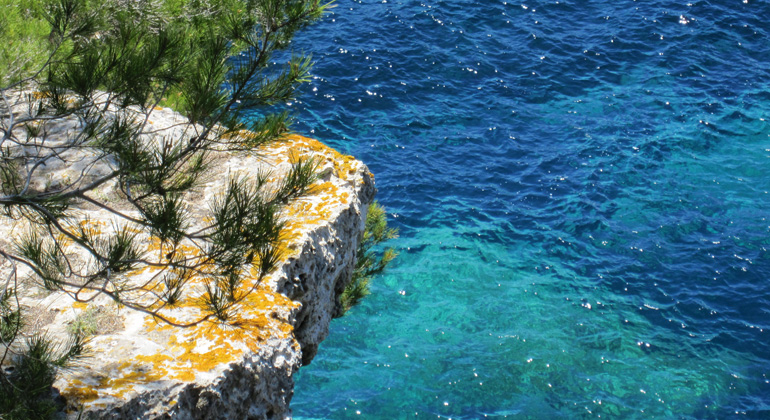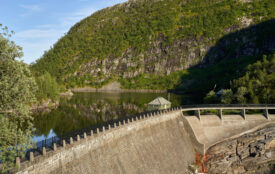Climate emergency: Local and regional leaders call for a Green Deal for the Mediterranean
Barcelona hosts the 10th anniversary of the Euro-Mediterranean Regional and Local Assembly with global warming seen as a catalyst for deeper cooperation in the Mediterranean.
With the Gloria storm as an unexpected guest, the Euro-Mediterranean Regional and Local Assembly (ARLEM) has celebrated its 10th anniversary in the city where it held its first meeting: Barcelona. The Catalan capital welcomed over 100 representatives of local and regional authorities from the three shores of the Mediterranean, with climate change at the top of the agenda. The region is acknowledged to be particularly vulnerable to global warming.
Karl-Heinz Lambertz, President of the European Committee of the Regions and ARLEM Co-chair, declared: “The European Union has reaffirmed its climate leadership by proposing the Green Deal as a path towards climate neutrality.
Climate change knows no borders, which is why we must also work closely with our neighbouring partners so we all accelerate our efforts to adapt and build resilience. We must expand this sustainable growth model and establish a Green Deal specific for the Mediterranean, offering a climate pact that strengthens cooperation and which offers new financial tools to deliver climate action across the region. As ARLEM celebrates its 10th anniversary, sustainable development must become the driver for our Assembly to deepen cooperation for decades to come.”
Mohamed Boudra, Mayor of Al Hoceima (Morocco) and ARLEM Co-chair, said: “In ten years, ARLEM has demonstrated tangible benefits that go beyond reinforcing political dialogue between our cities and regions. The Nicosia initiative, through which we exchange skills and expertise on key areas such as water management, fisheries or public health, are a perfect example of it. As global warming hits our territories and the rise of sea levels threatens our agriculture, we have a shared responsibility to work together to tackle climate change as much as we have the duty to deploy a growth model that provides our youth with new jobs and economic opportunities.”
Nasser Kamel, Secretary General of the Union for the Mediterranean (UfM), said: “We are facing a climate emergency across the Mediterranean today. And it is easy to understand that local and regional authorities are at the forefront when addressing the effects of climate change. Cities and regions are the first line of defence. The success of effective measures to mitigate and adapt to the negative effects of climate change depends, to a great extent, on the regulatory measures that they enforce, on the policies that they adopt and the projects that they implement. The UfM stands ready to support, hand in hand with ARLEM, those efforts to help local and regional authorities face this common challenge.”
“The sea is a living witness of the deprived status of our environment. As many as 30,000 bottles end up in the Mediterranean every minute. A sustainable transition is urgent and much needed and the blue economy is an opportunity to achieve it.” That was the key message of Vincenzo Bianco, member of the Catania City Council and President of the National Association of Italian Municipalities in the context of the adoption of his report on the Blue economy.
The Assembly also adopted a report on ‘Euro-Mediterranean integration: The role of regional and local authorities’ by Jihad Khair, Mayor of Beit Sahour, Palestine, who declared: “Local and regional authorities have demonstrated to be pivotal in boosting regional integration in the Mediterranean and we must continue our efforts in the same direction. Our common framework for action is the United Nations’ 2030 Agenda and its Sustainable Development Goals. They can only be reached with the active involvement of local and regional authorities. Two priority areas must drive our cooperation: migration and climate change. Together, we can move ahead in a much better way.”
Members appointed Lizzy Delaricha, Mayor of Ganei Tikval (Israel), as rapporteur of an upcoming report on the digitalisation of small businesses.
Agnès Rampal, a Member of the City Council of Nice (France) and President of the Euro Mediterranean Commission of the Provence Alpes Côte d’Azur, was appointed rapporteur of a report entitled ‘The role of agriculture in sensitive climate areas’, which she sees as a key contribution to a Green Deal for the Mediterranean.
The 2nd edition of the ARLEM Award for young local entrepreneurship in the Mediterranean went to Rima Dates, an Algerian company that produces dates-based products such as syrup, dates vinegar and stuffed dates with nuts and chocolate. Co-founder Hammou Boussada said: “We started with the objective of reworking traditional oasis dates to introduce new market products in a modern way. We are now proud of the positive impact that our enterprise has had in the local community. The ARLEM Award gives us new motivation to continue our expansion with the same spirit of sustainability and positive social change.”
Four other businesses were shortlisted: a recycling start-up from Lebanon and three from Israel – a wave-energy firm, a non-profit training association, and a non-profit business accelerator. The ARLEM Award selection criteria include the impact on job creation, impact on community, innovative value, respect for workers’ social rights and support or facilitation from local or regional authorities. Forty projects from ten different countries applied for the 2020 ARLEM Award.








